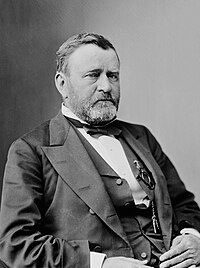
Photo from wikipedia
Abstract Background Antimicrobial stewardship programs (ASP) are crucial to improving patient outcomes and decreasing resistance, but the effectiveness and the presence of ASP in low-income countries, like Nepal, are unknown.… Click to show full abstract
Abstract Background Antimicrobial stewardship programs (ASP) are crucial to improving patient outcomes and decreasing resistance, but the effectiveness and the presence of ASP in low-income countries, like Nepal, are unknown. Nepal has no formal ASP efforts or antimicrobial regulations, which has lead to an increased prevalence of resistance in the community. We developed and implemented an educational ASP training program to identify areas for ASP in two community hospitals in Kathmandu. With a multidisciplinary team of clinicians and Nepal stakeholders, we developed an ASP toolkit aimed to improve patient outcomes through antimicrobial optimization. Methods A 1-day conference on ASP and resistance was held at a community hospital in Kathmandu, with subsequent field observations, microbiologic hospital surveillance, and 2,016 antibiogram review. Eleven physician champions (PC) from the two hospitals were selected for formal ASP instruction. ASP protocols were developed with stakeholders and included (i) empiric and definitive antibiotic selection recommendations, (ii) renal dose-adjustment guidelines, (iii) evidence-based duration of therapy recommendations, and (iv) an intravenous-to-oral antimicrobial conversion policy. Two days of fieldwork and stakeholder feedback occurred. A post-test PC evaluation was performed with the intent to gather feedback for implementation of a post-prescription review and feedback (PPRF) system incorporating AMS protocols related to antimicrobial optimization. Results The most prevalent infectious organism isolated was Escherichia coli (51%). Most E. coli isolates were commonly resistant to first-line or broad-spectrum antibiotics: 49% ceftriaxone, 46% ciprofloxacin, 22% piperacillin/tazobactam, and 32% meropenem. The overall PC response to ASP toolkit was positive: 73% of PC felt the guidelines would be useful in making decisions about antimicrobials. Cost and availability of antimicrobials were identified as barriers to successful implementation. Conclusion Development of a simple ASP toolkit can be an effective means to bring awareness appropriate antimicrobial use, and may be extrapolated to other low-income countries. Stakeholder buy-in is necessary for a successful international interventional program. Disclosures L. M. Kaljee, Merck: Grant Investigator, Grant recipient; T. Prentiss, Merck, Inc.: Investigator, Research grant; R. D. Joshi, Merck: Grant Investigator, Grant recipient; B. Shrestha, Merck: Grant Investigator, Research grant; D. C. Bajracharya, Merck: Grant Investigator, Grant recipient; M. J. Zervos, Merck: Grant Investigator, Grant recipient; Genentech: Grant Investigator, Grant recipient; Cempra: Grant Investigator, Grant recipient; Medicines Company: Consultant, Consulting fee
Journal Title: Open Forum Infectious Diseases
Year Published: 2017
Link to full text (if available)
Share on Social Media: Sign Up to like & get
recommendations!